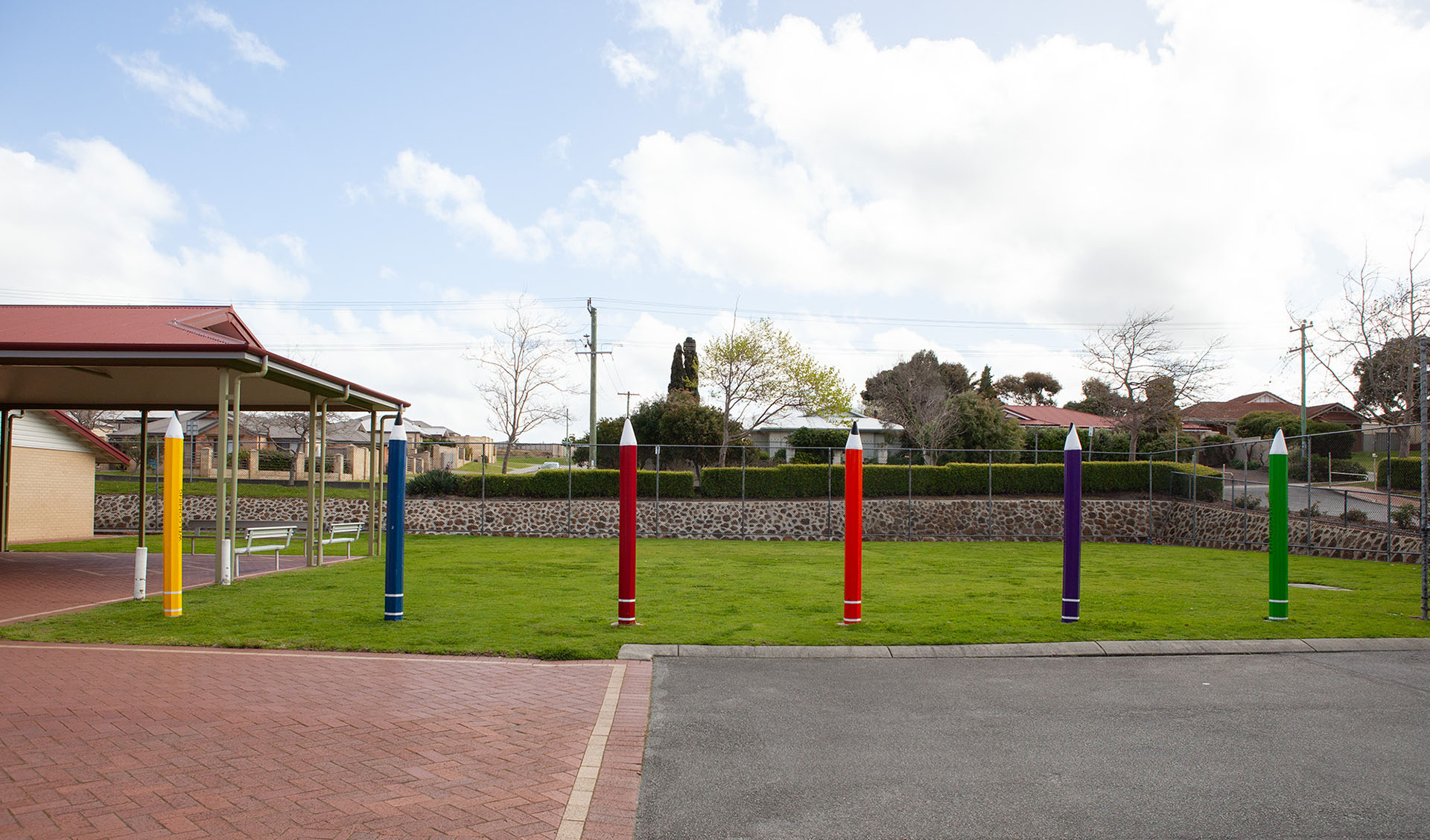
Vision, Mission and Values
Vision
St Joseph’s College is a school community focussed on the development of Three-Year-Old to Year Twelve. With Jesus as our role model, we are proud to be an inclusive community where each child and their family are recognised as individuals and as valued members of the College.
Our vision declares our context and our long-term aspiration: In the context of Catholic faith and values, we aspire to be a leader in the development of young people in the Great Southern community.
Mission
Our mission and motto ‘Open to Wisdom’ are at the heart of how we bring our vision to life. To be a leader in the region requires a holistic approach to student development, an openness to learning and all in the College community seeking to empower others to reach their full potential.
In partnership with parents and caregivers therefore, we seek to empower all to:
- Be ‘Open to Wisdom’
- Be their best
- Live out our core values
Values
Underpinning our vision and mission is a commitment to our core values. These values guide the way that we go about our daily work.
Our core values are:
- Welcoming
- Enthusiastic
- Sorry
- Thankful
- Inclusive
- Encouraging
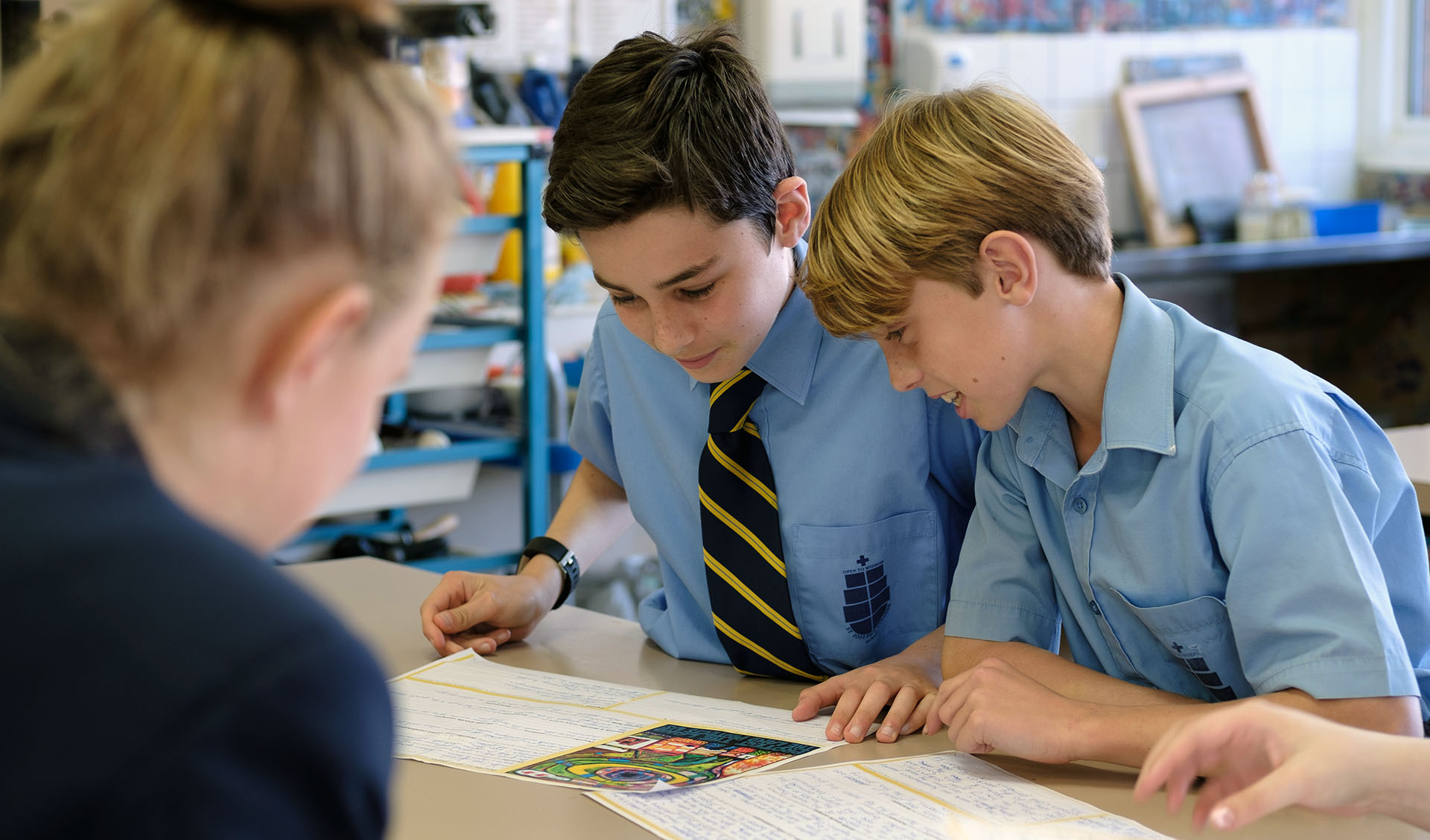
St Joseph’s College is a place where young people are valued for their God-given individual gifts, encouraged to accept responsibility for their actions and challenged to enact Jesus’ Word and deeds.
JUNIOR SCHOOL - Three Year Old Programme to Year Six
St Joseph’s Junior School caters for children from Three Year Old to Year Six. It provides a foundation of quality learning. The Junior School provides a learning environment that caters for the spiritual, academic, social, physical, and emotional requirements of early and developing learners. It aims to develop the whole person through academic activities, play, reflection, prayer, music, sports activities and active learning.
MIDDLE SCHOOL - Year Seven to Year Nine
Middle Schooling has been implemented at St Joseph’s College after a process involving extensive educational, parental and community consultation. Middle Schooling aims to promote the abilities and talents of students in Years Seven to Nine, in a positive and vital way. It seeks to validate and invigorate a vital stage of life by providing a sound educational context and purpose for young people and their learning.
Instead of separating Junior and Senior Schooling as discrete and totally distinct stages of human learning and development, Middle Schooling provides an intermediary phase which draws and builds on the strengths of traditional Junior and Senior Schooling practices, celebrates the Middle School years in their own right and also prepares students for their Senior School studies.
SENIOR SCHOOL - Year Ten to Year Twelve
St Joseph’s College Senior School acknowledges that the emotional and psychological needs of adolescents aged between fourteen and seventeen are significantly different from younger children. As a result, educational methodology needs to reflect those needs. Older adolescents need to be exposed to greater freedom and independence in order to achieve personal development and growth. The structure of Senior School addresses these needs. Senior School students are provided with more choices and greater responsibilities.
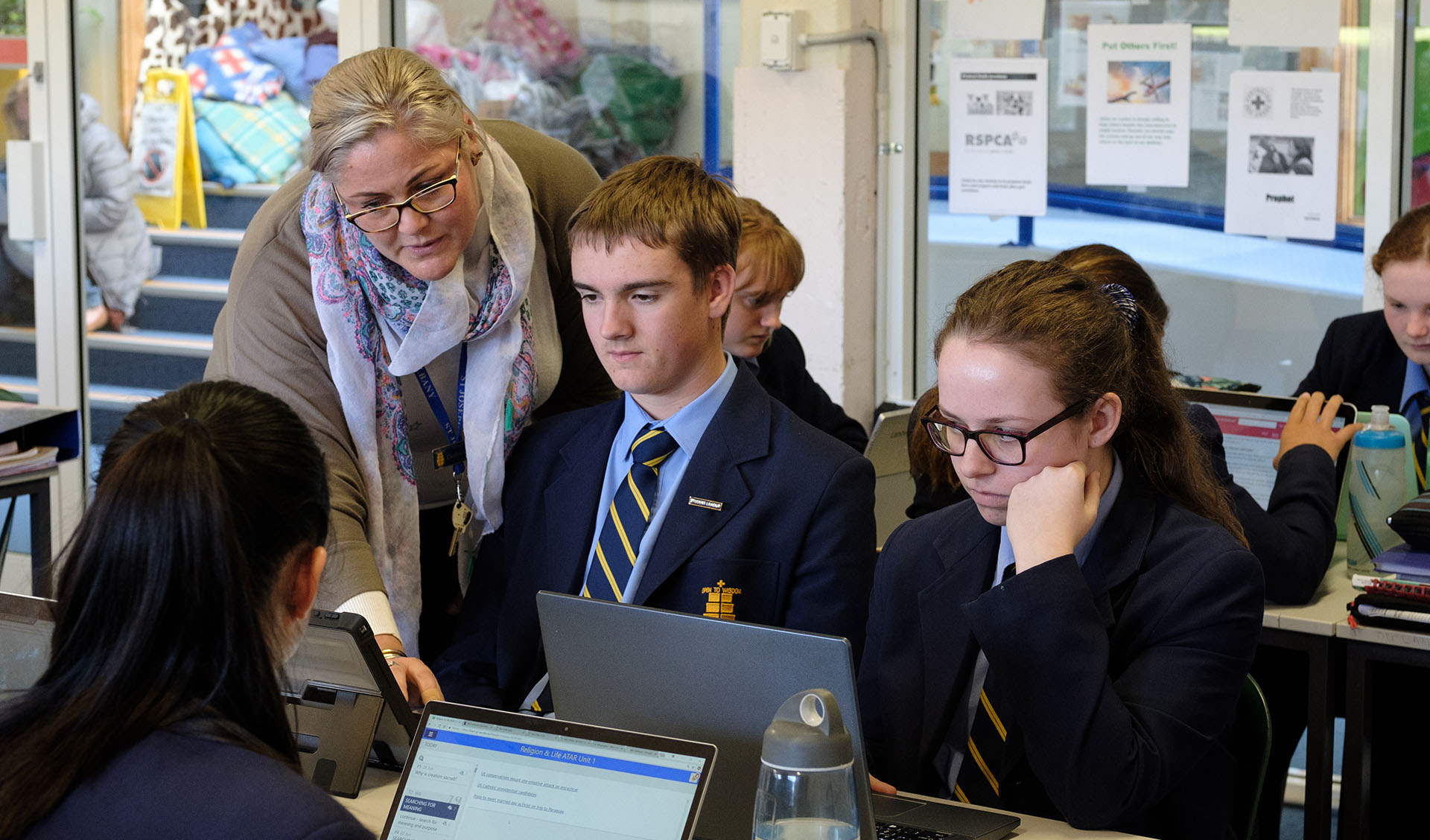
An important feature of the curriculum at St Joseph’s College is a 3 Year Old Programme to Year 12 approach that facilitates a cohesive view of the total span of each student’s schooling. By providing a sound basis for continuity and consistency, it enables students to progress smoothly throughout their entire education.
The College offers a diverse and balanced curriculum designed to meet the needs of students as appropriate to their stage of schooling. The College curriculum incorporates nine learning areas: Religious Education, Arts, English, Science, Maths, Health and Physical Education, Languages Other than English, Society and Environment and Technology and Enterprise. The Religious Education programme is based on the Archdiocesan Guidelines. The Curriculum is developed using the Curriculum content developed as based on the outcomes of the Curriculum Framework, which reflects contemporary thinking about what students need to learn in order to lead successful and rewarding lives in the twenty-first century. Learning Technologies are an integral part of all curriculum areas.
The St Joseph’s Trade Training Centre offers Year 7 to Year 10 students a variety of courses from Jewellery making to Woodwork and Metalwork: these courses will prepare students for Certificate courses in Year 11 and 12.
The Senior School students have the opportunity to complete Certificate II in the Trades selected courses offered at St Joseph’s College: Metal Engineering, Furnishing and Construction. Students will be advantaged in further education and career prospects.
JUNIOR SCHOOL - Three Year Old Programme to Year Six
The Three Year Old Programme and Pre-primary are based on a sound understanding of young children’s developmental and learning characteristics. Activities are designed to be ‘hands-on’ and fun. Children are encouraged to develop enjoyment of learning, understanding of the world around them and positive relationships with others.
In the more formal Junior School years there is an emphasis on literacy skills, effective communication, collaborative learning, problem solving, creative and imaginative thinking and social skills.
To help children work towards achieving the outcomes required at their level of learning, College staff employ a variety of teaching and learning strategies to provide for the complex needs of children in our society. Support staff work together with classroom teachers to enable children to achieve their full potential.
Students have the opportunity to participate in a variety of sports. The children are regularly exposed to a wide variety of cultural and arts events throughout the year by way of visiting performers and artists. There is also a high level of community involvement by the children. The Junior School Choir has earned a reputation of excellence both in Albany and Perth. It participates in eisteddfods and also has a strong association with the Parish and community events.
MIDDLE SCHOOL - Year Seven to Year Nine
In Middle School the curriculum is characterised by an emphasis on integrated, as well as specialised learning. Students are encouraged to develop as independent learners. The Middle School at St Joseph’s “looks and feels” like traditional junior and senior schools in some ways. Students in Year Seven have one core teacher, but are also taught by a number of learning area specialists across the curriculum. Year Eight students are taught by a team of learning area specialist teachers.
Year Nine students also have the opportunity to shape their educational programme by making selections from courses offered in specialised learning areas.
Students are required to actively support the ethos of the College through their involvement in co- -based initiatives and fund-raising, curricular activities such as community service, sport, House liturgical celebrations, assemblies and arts performances. Middle School students are assisted to participate in this dimension of College life by developing and employing leadership qualities and collaborative skills within all relevant contexts.
All in all, the structure and ethos of Middle Schooling encourages students to take more responsibility for themselves and their learning as they move through to the next phase of their life.
SENIOR SCHOOL - Year Ten to Year Twelve
In Senior School courses of study become increasingly focused and specialised. Year Ten is characterised by semesterised subjects, significant breadth of study and the flexibility to choose courses that appeal to students’ own specific interests, motivation and abilities.
Students have the opportunity to develop life skills such as problem solving, analytical thinking, time management, team work and process skills.
Students are encouraged to become independent, self-motivated learners with well-developed research skills so as be better prepared for post-Year Ten pathways.
Students in Year Ten undertake compulsory studies in the learning areas of Religious Education, English, Mathematics, Science, Society and Environment, Health and Physical Education. Students are able to study subjects of their choice from those offered by the College in the learning areas of Languages Other Than English, The Arts, and Technology and Enterprise. Students in Year Ten are able to undertake work experience.
Students in Years Eleven and Twelve have the opportunity to access a large range of Western Australian Certificate of Education Courses. In addition they can access Vocational Education and Training (VET) courses and participate in @work, the College’s work-place learning programme. Smaller class sizes facilitate greater individual attention for each student. Flexibility is built into a timetable that allows students from a particular year group to access subjects normally only studied by another year group.
Students from the College have been very successful in gaining entry to their choice of University, TAFE courses and employment. Students in Senior School have the opportunity to take on College leadership positions. They also have the opportunity to participate in an extensive range of extra-curricular activities.
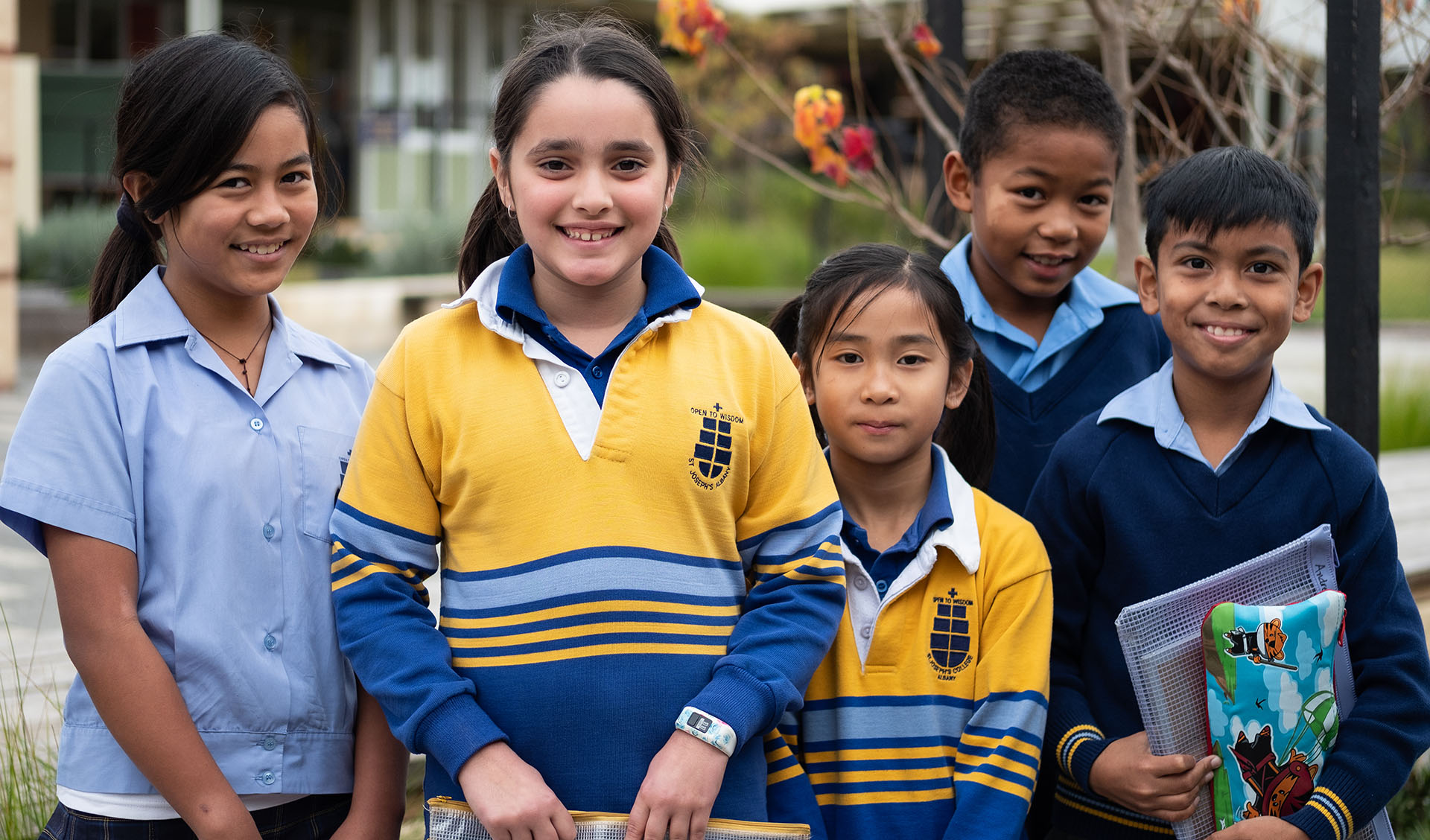
As a Catholic school, St Joseph’s College seeks to foster in each student the development of their complete humanity based on the model and inspiration of Jesus Christ. Pastoral Care structures and policies reflect the Christian ethos of individuals caring for and respecting one another.
In the Junior School the classroom teacher is the foundation of the pastoral care structure. The Junior School operates on the premise that there must be a genuine and consistent partnership between the child, the teacher and the parent. To help encourage and nurture this relationship, parents are encouraged throughout the Junior School years to be active participants in the learning process via both direct and indirect assistance in the classroom, homework supervision and encouragement, attendance at special events such as liturgies, assemblies, parent meetings and sports days as well as help with excursions and Masses. Students in Middle School liaise closely with a Home Room Teacher, who oversees both their social and academic progress on a daily basis. Team Leaders work with Home Room Teachers and classroom teachers to provide ongoing educational support for students with special problems or needs. The Head of Middle School assumes overall responsibility for the pastoral welfare and academic achievement of all Middle School students and works with students, parents and teachers as required. Pastoral Care in the Senior School is an extension of the Middle School model. Students in Senior School liaise closely with their Home Room Teacher, who oversees their social and academic progress. Senior School Co-ordinators and the Head of Curriculum work with Home Room Teachers and classroom teachers to provide ongoing educational support for students with particular needs. In addition, the College Psychologist and Careers Adviser are also available to support students.
The Head of Senior School assumes overall responsibility for the pastoral welfare and academic achievement of all Senior School students and works in partnership with students, parents and teachers.
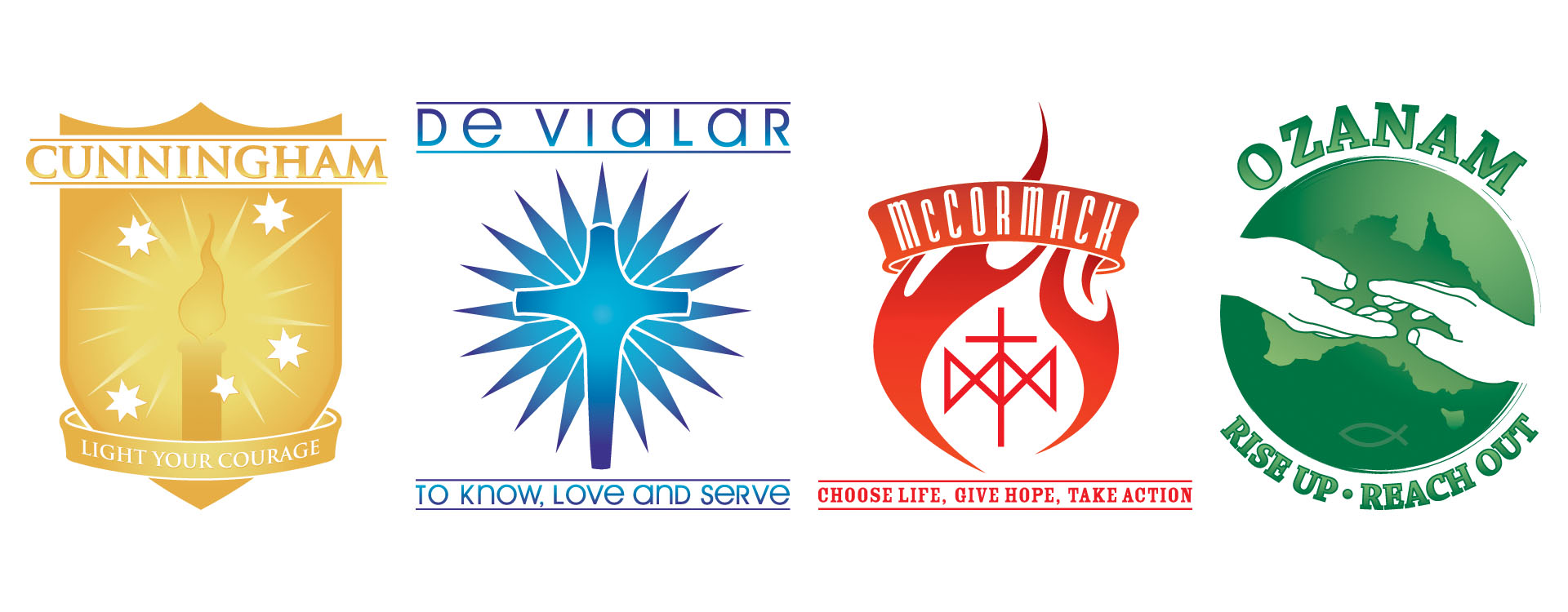
St Joseph’s College has a Kindergarten to Year Twelve House System. The Houses are named after people
who offered lives of witness and service to the community.
Cunningham
Cunningham House is named after Monsignor Charles Cunningham, Parish Priest of Albany from 1958 – 1972. Monsignor Cunningham was a Chaplain on the Kokoda Trail during World War II. On returning to Australia Monsignor Cunningham served in a number of parishes. Highlights of this time included setting up a hospital in Busselton for aged care and buying a College bus from a lottery win. In Albany Monsignor Cunningham was well known for his ecumenical ideals. Thanks to the Sisters of St Joseph of the Apparition and Mons Cunningham the current College campus was built. In December 1972 Monsignor Cunningham was transferred to the Parish of Brunswick Junction. Many had come to know and love “Mons” during his fourteen years in Albany.
De Vialar
Emilie De Vialar was born in 1797 to a rich and distinguished family in France. The Sisters of St Joseph of the Apparition were founded by Emilie in 1832. Emile and the Sisters of St Joseph devoted their life to prayer and to the care of the poor, the sick and the aged. They also provided free education for children. The Sisters expanded their work to other countries and in 1855 the Sisters of St Joseph of the Apparition came to Perth to open a College. The Sisters came to Albany in 1856 and opened their first College in 1881. Today, the Sisters of St Joseph work in twenty six countries. St Emilie was canonised in 1951. Her last testament to her Sisters was ‘love one another’.
McCormack
Irene McCormack was born in Kununoppin in Western Australia in 1938. After completing her schooling in Perth, she joined the Sisters of St Joseph of the Sacred Heart. This allowed Irene to serve throughout Australia, teaching Religious Education in Colleges. Her final appointment was at Kearnan College in Manjimup. In 1989 Irene left Australia for Peru. She worked with the poor in Huasahuasi, about 200 kilometres from Lima. Amidst daily threats and acts of violence, false accusations were made against Irene and she was murdered in 1991. Irene McCormack fought against inequality and injustices against people. The people of Huasahuasi have claimed her as their own and with a deep understanding that she gave her life for them they celebrate the anniversary of her death each year with a special solemnity. The story of her life and death has also made an ongoing impact on many people from Australia and beyond.
Ozanam
Frederic Ozanam was born into a nineteenth century society afflicted by social inequality. As a student in Paris in the 1830s he was confronted with the daily misery of the working class poor. In 1833 a group of six students and a journalist formed a group called the Conference of Charity. Their purpose was simple: as a small group of friends they would become servants of the poor in Paris. Others were moved by their example to commit themselves to serving the poor. They chose to call their group the Society of St Vincent de Paul, based on the exemplary charitable life led by St Vincent. Frederic gave his life totally to God and to love of neighbour. Today the worldwide St Vincent de Paul Society continues the mission of service through its almost one million members.




